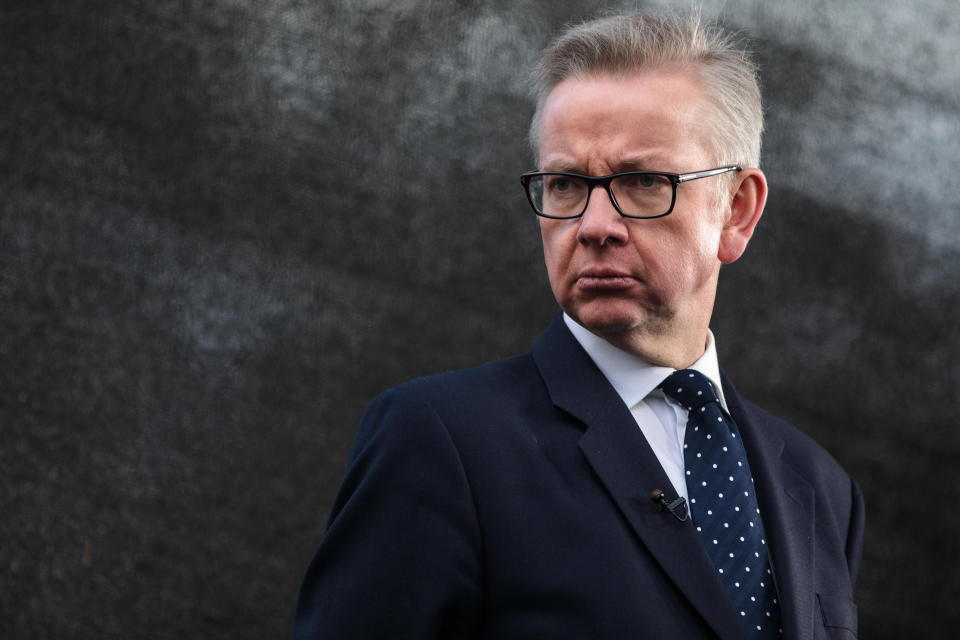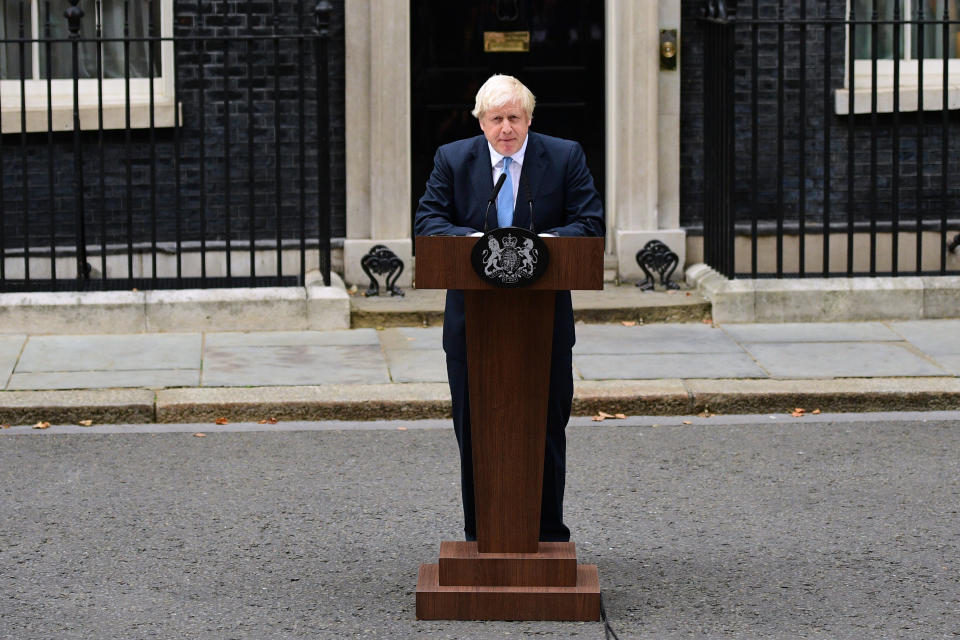Gove and Cox sent to dissuade rebel MPs wanting to block no-deal Brexit vote

Cabinet ministers Chancellor of the Duchy of Lancaster Michael Gove and Attorney General Geoffrey Cox are trying to persuade rebel Tory MPs to back down, as moderate Cabinet Ministers such as Welfare Secretary Amber Rudd feel more uncomfortable with the government's approach, sources have told Yahoo Finance UK.
Those rebel Tory MPs either support remaining in the European Union or looking for a soft Brexit and are seeking to control the parliamentary timetable in order to delay no deal.
Gove and Cox have “reassured the rebels about preparations for no deal and legal work being done on the backstop,” a source with knowledge of the discussions told Yahoo Finance UK.
READ MORE: Boris Johnson could push for general election in October if no-deal Brexit is blocked
Moderates initially believed that like-minded ministers such as justice secretary Robert Buckland, welfare secretary Amber Rudd and health secretary Matt Hancock would be sent out to persuade MPs to support the government. However, it is believed that the like-minded ministers feel increasingly uncomfortable with the combative approach of Downing Street.
Sources point to Amber Rudd’s comments to the Spectator’s Katy Balls as evidence to the growing discomfort. Rudd told Balls: “I have made my views clear to the prime minister that we should not be a party that is trying to remove from our party two former chancellors, a number of ex-cabinet ministers, that the way to hold our party together and to get a deal is to bring them onside and explain to them what we’re trying to do and why.”
Since making these comments, Rudd has had further discussions with like-minded cabinet ministers about the direction the government is heading with the combative approach being used.
READ MORE: Pound hits 34-year low against US dollar after UK general election threats
Prime minister Boris Johnson is piling pressure on potential rebels, with publicly outspoken Phillip Hammond describing the whipping operation as “aggressive.”
The whips’ job is to try and force through party members to all agree on one thing — therefore diminishing the likelihood that they’ll vote against key bills. There are talks that Johnson is looking to sack any MPs from the backbench if they defy him. This is called a de-selection.

Following a meeting with his team of whips on Sunday, Johnson is said to be looking to deselect any MP who attempts to block a prorogation or no-deal Brexit, including multiple prominent former cabinet ministers.
While some key figures are furious and likely to rebel no matter what (such as former Chancellor Ken Clarke and former attorney general Dominic Grieve), the deselection threat has intimidated younger MPs seeking re-election into backing the Government.
READ MORE: Fears for UK economy as construction suffers sharpest slide in a decade
“The deselection threat doesn’t necessarily work against MPs who are standing down at the next election anyway. Because of this, Dominic Grieve, Ken Clarke, and Oliver Letwin will likely still rebel.”
While sources involved in organising the rebels initially believed that younger MPs would fold and vote with the government, MPs such as Rory Stewart and Justine Greening were expected to fold by those organising the rebellion, however have stayed strong in their opposition.
A source working with some rebels said an MP like Alistair Burt should be considered a bell-weather of how successful the whipping operation was going, and given his confirmation he will vote against the Government, it seems like persuading MPs is not going to plan.
That being said, the moderate credentials of the whips office is likely to also play a role.
Chief whip Mark Spencer, deputy chief whip Amanda Milling and assistant whip Nigel Huddleston were name checked by one source involved as people with moderate credentials who could talk rebels off the edge.

 Yahoo Finance
Yahoo Finance 